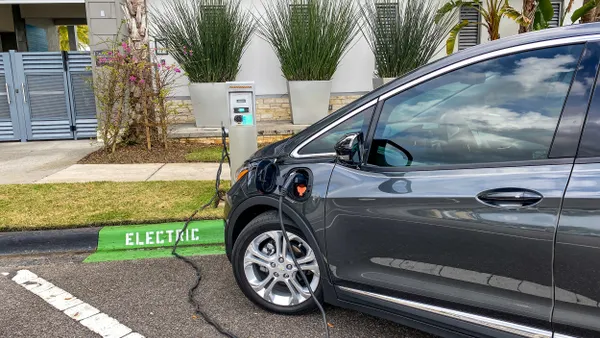Dive Brief:
- While nearly all mayors expect drops in their operating budgets in the next 12-18 months due to COVID-19, most mayors also believe investing in infrastructure and technology can spur an economic recovery, according to a survey from the U.S. Conference of Mayors (USCM) and Siemens USA.
- Of the 124 mayors surveyed, 69% said infrastructure is their top investment priority to create jobs and economic growth amid recovery, while 63% said they will prioritize the expansion of virtual and online city services. Meanwhile, 67% of mayors said now is the right time to invest in transit-related projects that will help with longer-term needs.
- As they ready their cities for the return of in-office workers, 97% of mayors said there will need to be investments in technology to reimagine and adapt how commercial buildings are used. Ninety-four percent of mayors also called on the federal government to provide emergency fiscal assistance to cities to mitigate budget shortfalls.
Dive Insight:
This survey continues to raise the alarm about the effects of COVID-19 on municipal budgets. It builds on an April poll from USCM and the National League of Cities (NLC), which found 88% of respondents expect to see "painful reductions" in revenue this year. In July, USCM called for $250 billion in federal funding to support flexible emergency assistance in all cities, a request that has yet to be granted.
As cities look to the post-COVID future, many leaders have emphasized that investing in transportation infrastructure is one major way to not only stimulate economic growth and get people back to work, but also improve residents’ lives and rebuild what the vast majority have agreed is crumbling infrastructure.
"Rebuilding our infrastructure has been a consistent priority for mayors in cities large and small, but our need is made only more urgent by the COVID-19 pandemic," USCM president and Louisville, KY Mayor Greg Fischer said in a statement.
Interestingly, 100% of survey respondents said corporations have a role to play in helping to rebuild or revitalize cities’ economies, especially through making capital investments. With municipal budgets likely to be tight in the coming years, those involved in the survey said they expect public-private partnerships (P3s) and similar cooperation to take on even more importance. In a statement, Barbara Humpton, CEO of Siemens USA, said partnerships of all kinds "are essential to moving our country forward."
Fischer called for Congress to "appreciate the severity of the budget crisis that cities are facing" and pass legislation that provides further aid. Earlier this year, the $2 trillion Coronavirus Aid, Relief, and Economic Security (CARES) Act included $25 billion in emergency federal funding for public transportation systems, but so far no further help has been forthcoming.
Fischer urged lawmakers to make bold decisions and support their fellow government leaders. "Our potential is only limited by the ability to work together to address these great challenges," he said.












